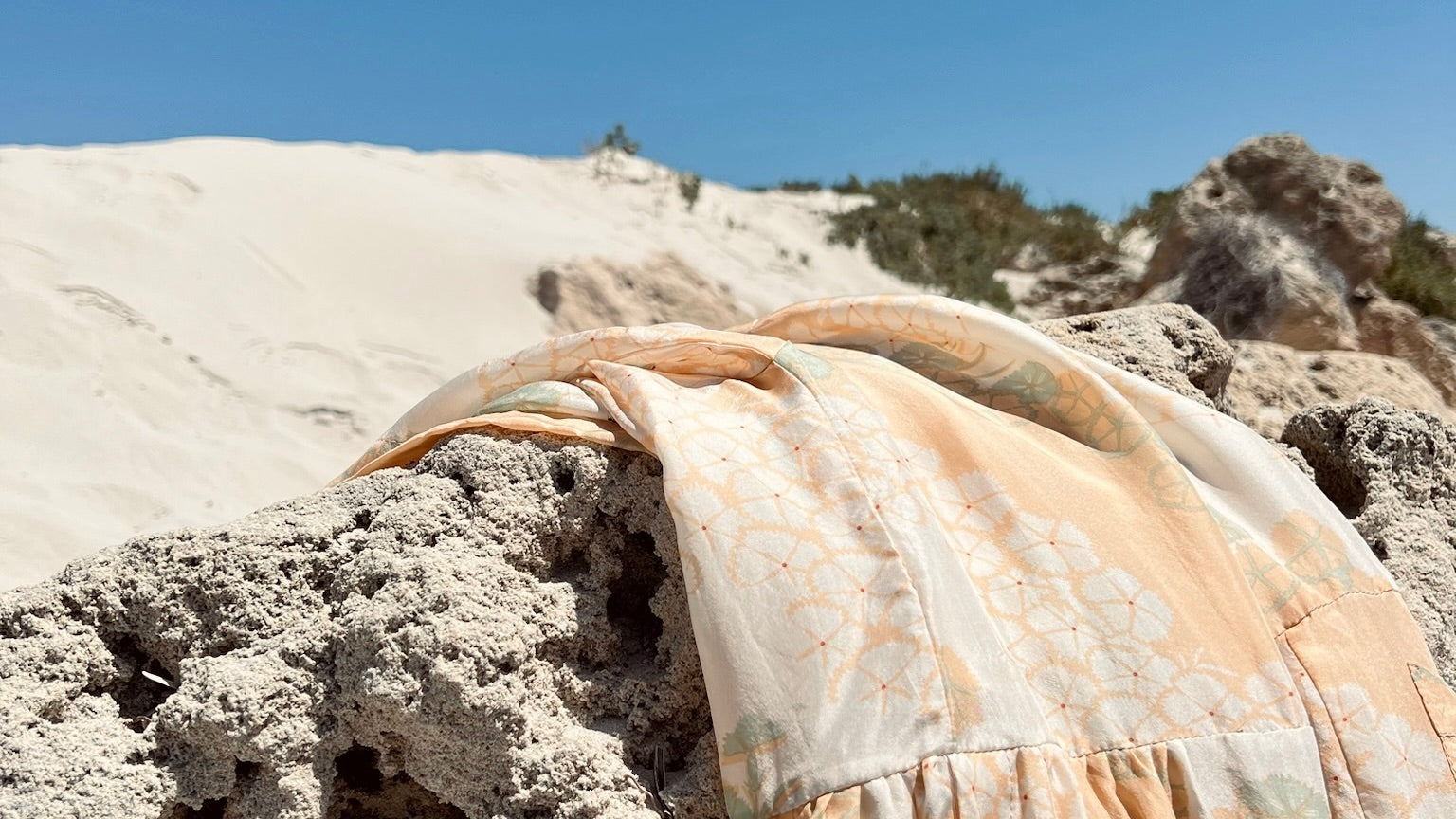ETHOS
CARBON FOOTPRINT

At FLANNEL, our commitment to both our customers and the planet runs deep. Sustainability isn’t an afterthought. It’s woven into everything we do, from design to delivery. We care deeply about reducing our environmental impact and prioritise responsible practices that lighten our footprint without compromising quality or craftsmanship.
Our team is actively working to reduce emissions from transportation by favouring sea freight whenever possible. Shipping by sea produces less than a quarter of the CO2 emissions compared to air freight, so this switch makes a big difference. We also minimise product movement between stores by consolidating stock transfers and reducing their frequency, which helps further shrink our carbon footprint.
Because we focus on exceptional quality and enduring finishes, our garments have a longer life and fewer returns. Seeing customers pair old FLANNEL favourites with new pieces is one of the greatest compliments – it’s a sign that our collections are truly keepsakes rather than throwaways.
Each FLANNEL garment comes packaged in 100% recycled plastic or cotton bags. In store, we offer our customers the choice to take their purchases home in our undyed cotton garment or string bags which can be reused at the grocery store or local farmer's market. We also provide recyclable hangers to customers who wish to receive their garments hanging, ready-to-wear.
We’re also proud to foster collaboration between our production partners. By encouraging them to share resources, bulk order trims and fabrics, and coordinate shipments, we not only reduce waste and emissions but also build a sense of shared community and purpose. Together, we’re working toward a greener future, one thoughtful step at a time.
Frequently Asked Questions
They are air-dried to minimise energy consumption.
Our products travel from factories in cotton bags to protect them from damage. When purchased, your garment remains in these same cotton bags for you to reuse as a wash-bag or travel bag for intimates, travel bag for make-up, or storage for fruit and vegetables. If you do not wish to take your garment in the cotton bag, we will happily keep and send back to our factories to reuse in our next shipment.
We also provide recyclable hangers to customers who wish to receive their garments hanging.
Our team is working hard to allow for sea freight over air freight as much as possible. Sea freight emits less than a quarter of the CO2e greenhouse gases than air freight.
We are also minimising the transportation of our products, which in turn minimises our carbon footprint. We have implemented a number of processes to make our product allocations between stores more efficient, including consolidation of stock movements and a reduction in the number of frequencies of transfers.
At FLANNEL, we prioritise the quality and finishes of our garments. As a result we receive very few returns, limiting our carbon emissions from transportation and clothing waste.
We are always encouraged to see our customers wearing old FLANNEL with new thanks to the keepsake nature of our collections.
FLANNEL's zippers and metal hardware are ordered from YKK, a global trims supplier recognised internationally for its consistent quality. Where possible, we use their NATULON® zipper range, made predominantly from recycled PET bottles.
The fabric used in our swimwear is made in Italy and is predominantly composed of recycled nylon (78% recycled nylon, 22% lycra). As our swimwear is manufactured in Indonesia, we used to source the fabric locally. However, we decided to make the change in 2021 to this Italian made recycled nylon swim fabric as the recycled nylon component aligned with our circular fashion values. The quality is also superior in terms of feel and durability, creating a longer lasting, high-quality product.
Our production houses predominantly source fabric and trims (excluding zippers and metal
hardware) from the local markets and textile mills. In doing so, they support their community and reduce the carbon footprint associated with freighting fabric between countries.
Any fabric preparation processes such as washing, dyeing and printing are done locally using either natural dyes of dyes with a high environmental protection rating.
After processing, the fabric is usually air dried rather than machine dried to further limit energy consumption.

